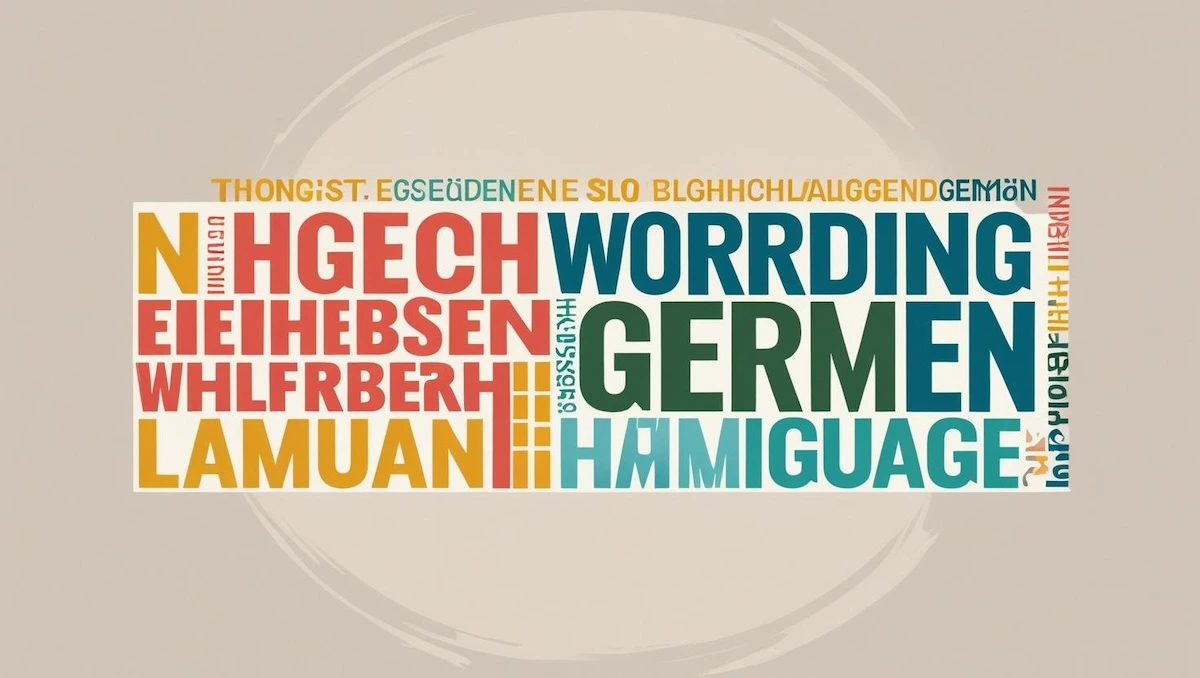German is known for its impressive compound words, where smaller words are combined to create something much longer and more specific. This can make the language seem intimidating, but understanding these long words is part of grasping the precision and uniqueness of the German language. In this article, we will explore the longest words in German, their meanings, and how the language’s compounding nature creates these fascinating expressions.
Why Are German Words So Long?
German words are so long because the language forms compound words by stringing together smaller individual words to create a new, more specific meaning. This method of compounding allows for highly detailed and precise expressions that would require entire phrases in other languages. For example, the word “Donaudampfschifffahrtsgesellschaftskapitän” literally means “Danube steamship company captain,” but is considered a single word in German.
In German, it’s common to find long words in legal, technical, and bureaucratic contexts, where every syllable serves a specific purpose. Unlike English, which often borrows foreign words to fill in gaps, German uses compounding to keep the language internally consistent.
The Longest Words in German: Famous Examples
Here are some of the most famous and longest words you’ll come across in the German language.
1. Rindfleischetikettierungsüberwachungsaufgabenübertragungsgesetz (63 Letters)
This now-defunct legal term translates to “Beef Labeling Supervision Duties Delegation Law” and is a prime example of bureaucratic language. Although it is no longer in use, it remains the longest recorded German word in legal context.
2. Donaudampfschifffahrtsgesellschaftskapitän (41 Letters)
Translating to “Danube Steamship Company Captain”, this word describes a specific role on a steamship operating along the Danube River. Each part of the word contributes to creating an exact meaning.
3. Kraftfahrzeug-Haftpflichtversicherung (36 Letters)
Meaning “Motor Vehicle Liability Insurance”, this term is used in insurance policies and reflects the country’s precision in technical fields. In everyday use, Germans refer to it as “Kfz-Haftpflichtversicherung.”
4. Betäubungsmittelverschreibungsverordnung (33 Letters)
This word translates to “Narcotics Prescription Regulation” and is commonly used in medical and pharmaceutical contexts to describe the regulation surrounding the prescription of controlled substances.
5. Grundstücksverkehrsgenehmigungszuständigkeitsübertragungsverordnung (43 Letters)
This technical word translates to “Regulation on the Transfer of Responsibilities for Property Transaction Approvals”, commonly used in legal documents related to real estate transactions.
6. Nierenfunktionsstörung (18 Letters)
Meaning “Kidney Function Disorder”, this word is frequently used in medical diagnoses to refer to a specific health condition affecting the kidneys.
7. Herztransplantationsgesetz (23 Letters)
This term refers to the “Heart Transplantation Law”, which governs heart transplant procedures in Germany. It’s an example of how compound words create clarity in specialized fields like medicine.
8. Elektroinstallationsarbeiten (23 Letters)
This translates to “Electrical Installation Works”, commonly used in construction and engineering to refer to tasks related to the setup of electrical systems in buildings.
9. Betäubungsmittelgesetz (23 Letters)
Meaning “Narcotics Act”, this word is used in legal and regulatory contexts to refer to the law governing controlled substances in Germany.
10. Lebensversicherungsgesellschaft (23 Letters)
This translates to “Life Insurance Company” and is used in the insurance industry. Like many German compound words, it combines multiple elements to form a single, highly specific term.
How to Pronounce Long German Words
German compound words may seem intimidating, but once you break them down into smaller syllables, they become much easier to pronounce. Here are some tips for pronouncing these long words:
Break It Down
Pronounce each individual part slowly and then speed up as you combine them. For example, “Donaudampfschifffahrtsgesellschaftskapitän” can be broken down into:
- DO-nau (Danube)
- DAMPF (steam)
- SCHIFF (ship)
- FAHRTS (journey)
- ge-SELL-schaft (company)
- ka-pi-TÄN (captain)
Stress Patterns
In German, the main stress typically falls on the first part of the compound word. Secondary stresses may fall on the other components. For instance, “Kraftfahrzeug-Haftpflichtversicherung” would be stressed on the first component, “Kraftfahrzeug”.
Tips for Remembering Long German Compound Words
If you’re learning German and want to master long compound words, here are some tips:
- The Building Block Method
Learn the base words first, then build on them. For example, start by understanding individual words like “Schiff” (ship) or “Versicherung” (insurance), and then combine them. - Visual Storytelling
Visualize what each component means. For example, imagine “Wasserflasche” (water bottle) as water being poured into a bottle. - Root Word Families
Many long German words share common roots like “Gesellschaft” (company) or “Versicherung” (insurance). Learn these roots to recognize and understand similar words. - Chunk and Conquer
Break long words into smaller chunks of 2-3 components to make them more manageable.
Famous Long German Words in Everyday Use
Some long German words have made their way into everyday conversation and writing. These words are often used in fields like law, medicine, and technology, making them essential for learners to understand:
- Nierenfunktionsstörung (Kidney function disorder)
- Elektroinstallationsarbeiten (Electrical installation works)
- Lebensversicherungsgesellschaft (Life insurance company)
Conclusion
German’s ability to create long compound words is a fascinating aspect of the language. These words, which often appear in legal, medical, and technical contexts, demonstrate the language’s precision and logical structure. By learning how to break down and pronounce these words, you can significantly enhance your understanding of German.
Ready to Take Your German Skills to the Next Level?
Mastering the longest words in German requires both practice and exposure to the language. Tools like the International English Test can help you assess your progress in learning not only German but also other languages like German. Whether you’re working on your pronunciation or tackling challenging vocabulary, the International English Test offers an excellent opportunity to track your language skills.
By embracing the beauty and logic behind compound words, you’ll soon find yourself navigating the German language with greater ease. Enjoy learning, and let your journey into the world of German vocabulary continue!

